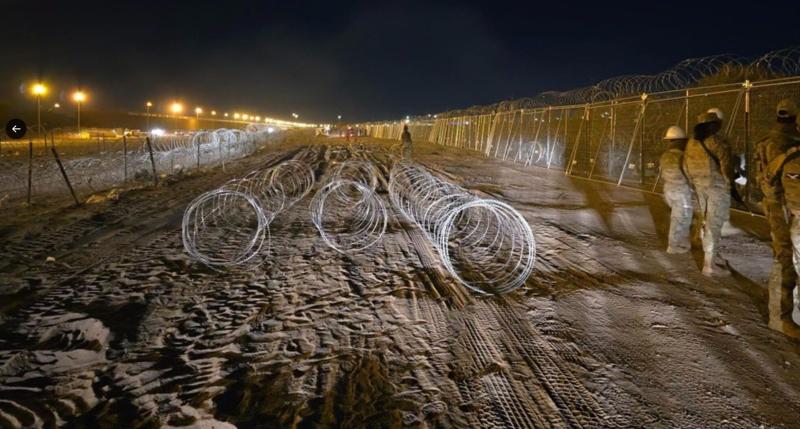Border security and immigration reform aren’t far from the minds of voters in Pennsylvania and across the country.
It’s important to incumbent U.S. Sen. Bob Casey Jr., D-Pa., and the Republican candidate challenging him, Dave McCormick, too. So much so that both men spent a quarter of their final debate attacking each other’s solutions to the problem.
“This has become a national security crisis of epic proportion,” McCormick said as he detailed one of his visits to the southern border in which Immigration and Customs Enforcement agents caught five people from China and five “military age” Syrian men crossing in the middle of the night.
Terrorists, convicted criminals, and drug traffickers also take advantage of the nation’s lackadaisical policies, he said, leaving communities at risk and worsening the opioid epidemic.
Casey, however, said that McCormick opposes a bill stalled in Congress to hire more agents, reform rules for asylum seekers and boost security at checkpoints to catch drug smugglers.
“I don’t know why he wouldn’t support that,” he said. “It doesn’t make any sense when he knows that we could advance the ball based upon the expertise of the border patrol.”
McCormick, like other Republican critics who include former President Donald Trump, argues the legislation didn’t address the unfinished border wall and would allow more than 2 million migrants into the country under weak asylum policies.
“We need to go after these cartels, treat them as the terrorist threat that they are, use our military selectively,” he said. “This has been like a frog in boiling water. Senator Casey has done that. He says he’s been working on it for years. How effective has that work been? We’ve got a crisis that’s destroying our country.”
According to a recent Voter’s Voice Poll, 40% of respondents say “illegal immigration” is one of the top three issues facing the country. The numbers are more pronounced for Republican voters, 62% of whom consider it the most pressing concern. Forty-three percent of Democrats cite abortion as a leading issue, while half of independents think inflation is the country’s biggest problem.
According to the Migration Policy Institute, 160,000 undocumented immigrants lived in Pennsylvania as of 2018. Roughly 94,000 were employed and paid $135 million in state and local taxes in 2017, according to the Institute of Taxation and Economic Policy.
Critics say these contributions don’t offset the social safety net costs.
The Center for Immigration Studies said during a January congressional hearing that although most undocumented households nationwide have at least one worker, nearly 60% use public assistance programs. Their use of welfare, medical services, and the public education system outstrips economic gains by $68,000 per person, according to the center.







